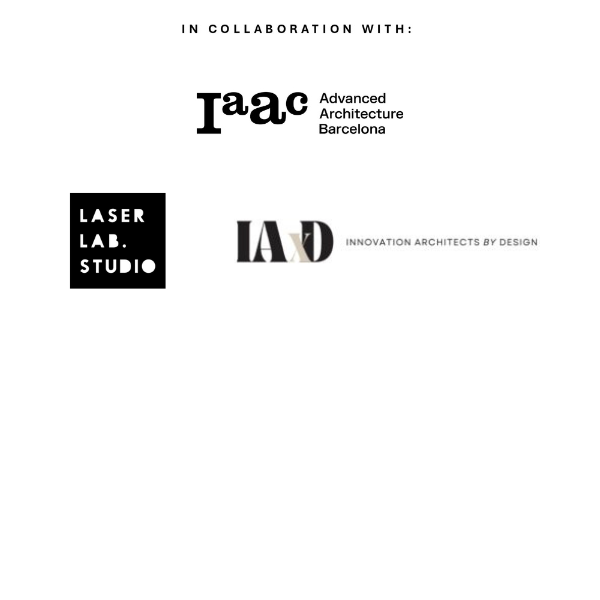Prototyping Healthy Futures: Interdisciplinary Innovation for Human and Planetary Well-Being
The USA Colorado Node invites students into an immersive exploration of how design, art, architecture, engineering, material innovation, emotional resonance, and environmental connection shape the future of human and planetary health.
Through site visits, hands-on biomaterial prototyping, emotional design exercises, and real-world collaborations, participants will engage in a unique learning journey blending systems thinking, sensory experience, and possibility-driven creativity.
OVERVIEW
The USA Colorado Node invites participants to explore how architecture, biomaterials, emotional design, and environmental connection can reveal new possibilities for human and planetary thriving.
This immersive, interdisciplinary studio blends site visits, hands-on material experimentation, emotional design exploration, and slow and rapid prototyping — all framed through relational practices that build new possibilities across fields.
Participants work alongside a cohort of diverse learners and a range of specialists and collaborators, strengthening their ability to think across disciplines, connect ideas, and design systems that care for both people and the planet.
Drawing inspiration from regenerative biomaterials, emergent emotional design frameworks, and embodied sensing practices, students will develop individual and collective projects that explore how thriving spaces, materials, and experiences can be felt, envisioned, and prototyped.
Through engaging mind, hand, and material, participants will strengthen both creative and analytical thinking, enhance their ability to design within conditions of complexity, uncertainty, and emergence, and expand their understanding of architecture as a relational, care-centered, and future-building practice.
The Colorado Node curriculum balances rapid group prototyping with slow, reflective material exploration, cultivating new capacities for care-centered innovation, relational design, and whole-person leadership in a changing world.
PARTICIPANTS
The Colorado Node welcomes applications from pre-university students, university students, emerging professionals, and lifelong learners across design, architecture, health, engineering, and related fields. Applicants should demonstrate a strong interest in exploring the future of health-centered innovation, sustainable material practices, emotional spatial design, and interdisciplinary systems thinking.
SCHEDULE
The IAAC Global Summer School is a full-time, two-week program taking place from July 10–22, 2025, combining hands-on prototyping, theoretical inquiry, and mentorship from industry leaders and guest educators.
The Colorado Node will deliver integrated experiential sessions each day, combined with local guest lectures and participation in the global lecture series streamed live from IAAC Barcelona.
*While we are in the process of finalizing an adventuresome schedule featuring unique experiential opportunities — including potential travel to Southern Colorado, pending participant enrollment minimums — participants can anticipate the following general range of of activities:
- Day 1: Welcome and Grounding — Rapid Prototyping Challenge, Site Sensing (Float Tank Experience), and Introduction to the Storied Self in Design Practice: How We Design Ourselves and With Others (Co-Design Principles)
- Day 2: Material Encounters and Innovation Landscapes — Introduction to Local Biomaterials, Emotional Mapping Exercises, and an Overview of Innovation and Intellectual Property in Emerging Fields
- Days 3–4: Color, Emotion, and the Architecture of Projected Space — Slow and Silent Prototyping + Full-Scale Immersive Mapping of Sensorial Environments
- Days 4–5: Material Exploration and Form Prototyping — Hands-On Biomaterials Experimentation, Systems Thinking in Material Assemblies, and Emergent Techniques for Health-Centered Design
- Days 6–7: Collaborative Construction — Group Material Aggregation and Adaptive Assembly Project
- Day 8: Midpoint Reflection — Field Visit to Meow Wolf Denver
- Days 9–10: Site Immersion and Vernacular Futures — TBA Visit (e.g., Casa Covida / or Local Rural Project) + Collective Exhibition Preparation
- Day 10: Collective Exhibition — Human Health & Habitat Thriving Installations + Reflection and Celebration
Please note that the final schedule may adjust based on enrollment numbers and site access opportunities.
EMBEDDED EXPERIENCES
- Float Tank Experience
A guided somatic immersion designed to enhance internal spatial awareness through sensory withdrawal, offering students a visceral understanding of how internal environments shape perception, creativity, and well-being — an experiential bridge to emotional architecture and human-centered spatial design. - Meow Wolf Denver
A field visit to the immersive arts complex Convergence Station, where students will experience how interactive narrative environments and large-scale emotional design challenge conventional boundaries between architecture, story, and sensation — offering inspiration for radically participatory and emotionally resonant space-making.
LEARNING OBJECTIVES
Key Concepts Explored:
Participants will engage with the following thematic areas:
- The sensory and cognitive effects of materials on human health, perception, and behavior
- Material-driven approaches to wellness, resilience, and the design of healing environments
- Innovations in bio-integrative design supporting medical, health, and care-centered applications
- The role of AI in creative development, exercising empathy with end-users, and expanding possibility-driven design methodologies
Upon completion of this course, participants will have:
- Developed a tactile, emotional, and systems-level approach to biomaterials and architectural experience.
- Strengthened both creative and analytical thinking through hands-on exploration, material experimentation, and relational design practices.
- Exercised AI for creative development.
- Co-created rapid collaborative prototypes inspired by possibilities for care-centered innovation.
- Crafted slow, emotional color-space prototypes through guided narrative exploration, whole-person storytelling, and reflective self-mapping.
- Learned about sustainable, local biomaterials, including algae composites, recycled fibers, and plant-based pigments.
- Participated in immersive site visits to leading-edge biomaterials innovators and experiential design environments.
- Engaged in reflective practices mapping emotional, material, and spatial discoveries.
- Expanded their understanding of architecture as a relational, care-centered, and future-building practice rooted in systems thinking, whole-person health, and material stewardship.
- Strengthened creative leadership capacities for designing within conditions of complexity, emergence, and ecological interdependence.
CORE TUTORS
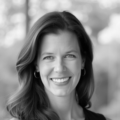
Monika Wittig
Design Innovation Strategist & Educator (IAAC Alumni 2007)
A dynamic leader with 15+ years of experience catalyzing innovation at the intersection of design, technology, architecture, and health. Expertise in forging impactful partnerships across academia, industry, and community, with a proven ability to facilitate campus-level strategic planning utilizing design thinking and stakeholder engagement. Skilled in leading dynamic workshops, delivering compelling public and plenary presentations, and guiding organizational change through prototyping and inclusive frameworks. Advocates for diverse perspectives and human-centered methodologies to drive meaningful, people-centered innovation and create lasting impact. www.iaxd.life
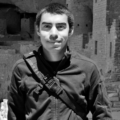
RJ Duran
Founder of LaserLab.Studio | Fabrication Expert, Designer
RJ Duran is a multi-faceted Designer, Engineer, Fabricator, and Founder of Laser Lab Studio, a boutique design and small-business manufacturing studio specializing in translating ideas into reality through creative design, quality materials, and impeccable production. With expertise in digital fabrication, prototyping, and material innovation, RJ has worked across disciplines to develop high-quality, precision-crafted products that blend artistry with functionality. His work extends into education, having served as a University Instructor and Prototyping Lab Manager at the University of Colorado, where he guided students and professionals in hands-on making, fabrication techniques, and design. RJ’s approach emphasizes the fusion of craft, technology, and material intelligence, making him an integral part of interdisciplinary innovation initiatives. www.laserlab.studio
GUEST TUTORS
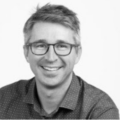
Shane Salisbury, AIA, NCARB — Principal Architect (IAAC Alumni 2007)
Shane built his design expertise working with several award-winning firms
specializing in high-end residential, commercial, and mixed-use architecture
based in Denver and Boulder, Colorado. His professional experience includes
several years as a Project Architect for multi-family communities ranging from
urban infill to remote master-planned developments. Shane has leveraged his
expertise to further the profession, teaching architecture and digital fabrication
at several universities in the United States and abroad, including several years
at the Institute for Advanced Architecture of Catalonia. Profile
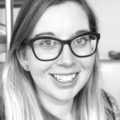
Kelsie Griffith, JD, MS — Patent Attorney and Bio-Innovation Specialist
Kelsie’s practice includes counseling clients through patent preparation and prosecution, due diligence, and portfolio analysis projects. She has a specific focus on molecular and cellular biology, including biochemistry, microbiology, therapeutic methods, and genetic engineering. She regularly works with individual inventors, publicly funded companies, nonprofit research institutes, and universities at all stages of portfolio development. Before joining Sheridan Ross, Kelsie served as program manager at the University of Colorado’s Inworks Innovation Initiative, where she oversaw operations, facilitated connections between the university and local entrepreneurs, and taught a curriculum focused on biological innovation. Kelsie holds a Bachelor of Science degree in forensic biology from Purdue University, a Master of Science degree in molecular and cellular biology from the University of Colorado-Denver, and a law degree from the University of Denver. Profile
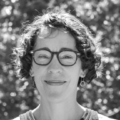
Maria Simon, NCARB, WELL AP — Architect
Maria is a WELL-accredited architect with nearly two decades of experience leading and managing architectural projects across a wide range of typologies, both in the U.S. and abroad. Currently an Associate at SAR+, Maria brings a deep commitment to mission-driven design—an ethos shaped in part by her early work on the architectural bids for the Obama Presidential Center in Honolulu and Chicago. Her portfolio spans civic, educational, housing, and health-centered projects, with a growing focus on affordable and community-serving spaces.
Maria’s research interests lie at the intersection of design, neuroscience, and storytelling. She studies how the physical and cognitive body experiences space, and is an active member of the Academy of Neuroscience for Architecture. Her work explores how narrative graphics and embodied cognition can inform the architectural design process, leading to environments that resonate on emotional and sensory levels.
A passionate educator, Maria has taught design studios at the University of Colorado Denver, Lawrence Technological University, University of Hawai‘i at Mānoa, and Portland State University. Profile
LOCATION & LOGISTICS
This workshop is designed as a migrating experience across the Denver/Boulder metro region (in Colorado, USA) allowing participants to engage with diverse environments, communities, and material practices. By utilizing multiple sites, participants will witness firsthand how place-based materials, sustainability initiatives, and regional expertise shape the evolving landscape of biomaterial innovation.
The workshop will be based in locations that offer access to fabrication labs, research facilities, and natural material sources, ensuring hands-on learning at every stage.
Engagements with institutions and industry partners will provide cutting-edge resources, blending academic research with real-world applications. Participants will also have the opportunity to work within outdoor environments, gaining direct exposure to natural materials and sustainable building practices.
Spaces will support a fluid rhythm between conceptual exploration, hands-on making, nature immersion, and emotional reflection.
REQUIREMENTS
Eligibility
IAAC Global Summer School (GSS) Colorado Node is open to creative, interdisciplinary designers interested in fields such as digital fabrication, architecture, engineering, health and wellness innovation, material science, environmental design, experience design, design and systems thinking.
Previous experience in design, fabrication, or material experimentation is welcome but not required. Curiosity, openness to hands-on making, and a willingness to explore across disciplines are highly valued.
Language of Instruction: The official language of the course is English, and reasonable accommodations will be made to support participants for whom English is a second language.
Age Requirement for Overnight Travel: Overnight travel opportunities are available only to participants aged 18 years or older. Participants under 18 must be accompanied by a parent or legal guardian for any overnight activities. Participants under 18 without a designated guardian will be restricted to local day-trip activities only. Detailed guidance will be provided well in advance for any supplemental travel opportunities.
Certificate
At the conclusion of the course, all participants who attend all sessions, present their work, and submit documentation of their process and proposed project during the final exhibition will receive a Global Summer School certificate issued by IAAC.
Visa
If traveling from outside the United States, participants are responsible for investigating visa requirements through the U.S. embassy or consulate in their country of origin.
Upon acceptance, the Colorado Node will issue a confirmation letter to assist with any necessary visa applications.
Please note: Due to evolving political and immigration dynamics in the United States, international travel and visa processing may be subject to additional scrutiny or delays. We sincerely apologize for any difficulties that may arise as a result of current governmental policies. While these circumstances are beyond our control, we are committed to supporting your participation as much as possible, and we warmly hope you will still consider joining us.
Fee
Early-Bird Fee for Colorado Node: $1,750 USD
This fee includes all required workshop materials, local field trips, and studio activities. There is no additional registration fee. Travel to the workshop start location and return travel after the conclusion, as well as accommodation and meals, are not included.
Standard Fee (applies to applications received on or after June 15th): $2,000 USD
Additional travel and any overnight stays that are part of the official workshop itinerary (including transportation, accommodations, and some meals) are covered by the enrollment fee.
Participants are expected to bring a laptop for use in individual and group activities. If access to a laptop is a barrier, participants are encouraged to contact the organizers as early as possible. We will do our best to accommodate participation. Information about required software will be provided in advance, and participants will not be responsible for any additional software costs.
Approximately 20 spots are available, filled on a first-come, first-served basis, pending minimum enrollment.
*If the minimum number of participants is not met, the Colorado Node reserves the right to cancel the workshop. In that case, all fees will be fully refunded.
APPLICATIONS
GSS25 USA node dates: 10 – 22 July, 2025
Early bird application deadline: 20th June, 2025
Normal application deadline: 5th July, 2025
GSS25 is open to all enthusiastic individuals eager to explore new technologies. No CV, portfolio, or educational certificates required.
To apply:
- Fill out the registration form below.
- Wait for an email from the USA Colorado Node organizers for payment information.
Your spot will be confirmed once the payment is successfully received.
For more information email: [email protected]
